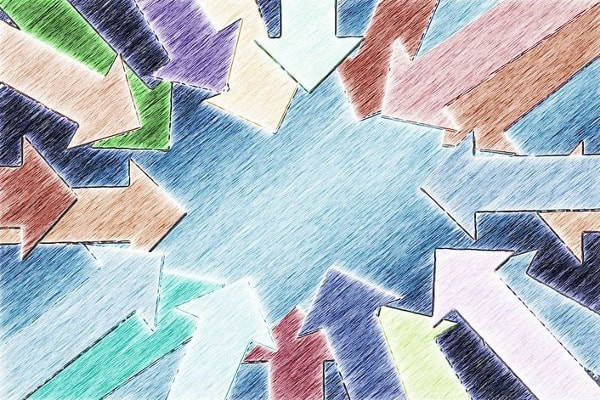I have heard several people tell me that – once they get their decluttering journey started – it became a self-runner very quickly. One lady actually admitted that she had “become addicted to decluttering”. While I clearly have my doubts that this is a proper addiction as defined by the medical profession, I can see myself believing that she has developed a habit of not letting any clutter accumulate in her life. And I approve, of course. “Addiction” has been defined as “a brain disorder characterized by compulsive engagement in rewarding stimuli despite adverse consequences”. Looking at this definition, there are several expressions that catch the eye: Brain disorder. This is a clear medical condition that may or may not be present in someone who declutters all the time, but the condition most likely has nothing to do with the decluttering activities. If anything, if a mental disorder is involved, it often leads to the opposite situation, where someone is unable to let go of things, like is the case in hoarding. Side note: hoarding is a very different thing from being a clutterbug, read up on it! This is where a habit is very different from an addiction: habits are usually dictated more by a sense of inertia, continuation, not ‘shaking the boat’, long-held beliefs, upbringing, education and social environments. Compulsive engagement. Some people tend to go overboard in everything they do, and while that could be a sign of mental illness, it often is simply an expression of eagerness to finally take steps to resolve a long-standing issue. I have had clients who needed that initial push in the right direction, or a sense of being allowed to let go of things, and that was sufficient to keep them going for a long time, gradually discarding a lot of ballast from a long life, lived to the fullest, and an accumulation of items that relate to that life. Sometimes the realisation that it’s not necessary to hang on to stuff in order to remember the good times is enough to open the dam and things just naturally get sorted away, making space for the new rather than hanging on to the old. Rewarding stimuli. I have strong doubts that letting go of things that may have held enormous meaning in the past is a rewarding enough stimulus to keep going and making the same hard decision for the next item. It probably also is not enough of a stimulus to let go of things to keep my clients going. I do, however, believe that the more they rediscover the joys of having space to be, to think, to live, the lower the pressure becomes to discard more things. A natural balance will be found eventually, where enough reward comes from the space itself to balance out the need to discard more. Despite adverse consequences. As far as I can see, there are few adverse consequences that stem directly from decluttering itself. If anything, there might be a knock-on effect on family members and family who might get upset that something they had seen as ‘belonging partially to them’ has been let go. Whenever there is any doubt of ownership or emotional attachment of third parties, I do advise to consult them before letting go of anything. I’m much in favour of the ‘ultimatum gambit’ when it comes to members of the family using the client’s home as a storage facility. [In case you are wondering: the ‘ultimatum gambit’ is a technique I have used on occasion that involves asking everyone who might have a stake in some of the 'clutter' to express their interest and pick up certain items within a given time period, lest they be given away. This takes away ambiguities in the decision process and allows for a smoother letting go.] After all this, lets recapture all the details: clearly, decluttering can pick up steam, and a person involved in going through their belongings and making clear decisions about the need to keep something or the possibility of letting go can become a bit of a self-runner. I see this as a good thing, but it needs supervision to prevent that person getting into a mindset where they end up giving away too much in the heat of the moment. And this is where I believe we can’t classify this as an addiction: if it were a decluttering addiction proper, there would be no way to stop it, and there would be more unavoidable adverse consequences. As for the rewarding stimuli, there are such stimuli, but they are related to what’s uncovered rather than the activity itself, and that distinction between action and stimulus could be seen as a crucial distinction. All in all, I cherish the thought that someone could become so engrossed with their own process of decluttering that they keep up the momentum on their own. This is a very rare situation as most people need a regular tap on the arm to keep them moving forward, keep them from diverging from the path, keep them motivated. In conclusion: can decluttering become addictive? Not really, but it can certainly become a positive habit on its own. The trick is to find out if that habit is being influenced by a real addiction hidden underneath… If you have enjoyed reading this, you may find these other articles interesting: Comments are closed.
|
Ask the ClutterMeisterIdeas to help clear away the mess in your homes and in your minds.
Feel free to share any of my posts, but please put in a backlink to the original blog post. Thank you. The author
Hi, my name is Tilo Flache. My mission: help clients declutter mind and space.
This blog contains pointers for your journey towards a happier living experience. Archives
November 2023
|



 RSS Feed
RSS Feed




